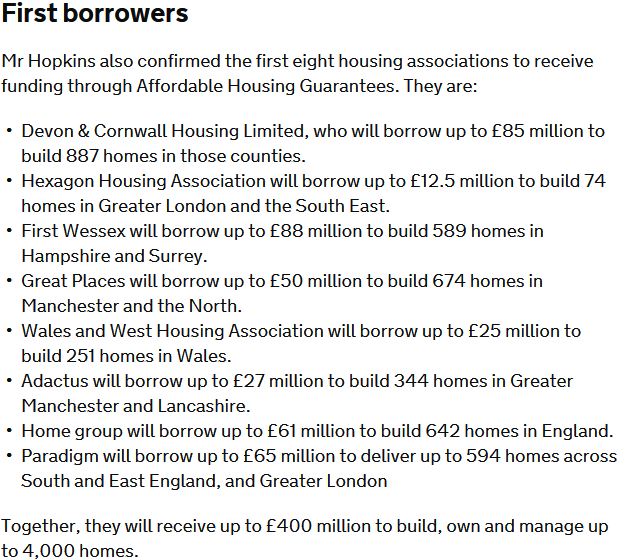![]() I suppose I could have done a piece on Vaughan Gething’s belated resignation; but I’ve said almost all I want to say on that nice Mr Musk’s platform. He’s moving to Texas, you know. (Musk, not Gething.)
I suppose I could have done a piece on Vaughan Gething’s belated resignation; but I’ve said almost all I want to say on that nice Mr Musk’s platform. He’s moving to Texas, you know. (Musk, not Gething.)
I will just add that Gething’s resignation speech was a classic of ‘Welsh’ Labour. He took no responsibility whatsoever for his fate; the mistakes, the errors of judgement, the lies, being an arrogant prick, no – it was all somebody else’s fault!
And of course, he was the victim of racism. Ideas of victimhood, and exploiting it, are now so embedded in the Labour party in Wales that they direct policy and legislation. As you’ll read in the third section of this offering.
Which is a Miscellany! A section on Woodknowledge Wales, yet another gang of enviro-shysters. Part three is on yet more tinkering by the ‘Welsh Government’ with the democratic process. And finally, some thoughts on wind turbines, and pylons.
◊
WOOD YOU BELIEVE IT!
An outfit that’s been in the news lately is Woodknowledge Wales (WKW). It encourages greater use of wood. I quote: “We champion the development of wood-based industries for increased prosperity and well-being in Wales“.
‘Well-being‘! That meaningless term used to justify anything and everything.
I have no issue with timber-framed buildings, or even buildings made entirely of wood. The issue is the politics, the funding, the peripheral messages and hidden agendas that always attach to outfits like WKW.
So who runs this show, and where might we find them?
Looking through the early directors of what was originally the Welsh Timber Forum I saw a few names I recognised, in fact, people I know personally. But there seems to have been a kind of takeover in 2016.
Of the six directors at the start of 2017, two have since left. The four remaining directors – of what converted to a Community Benefit Society (CBS) on St Patrick’s Day 2022 – all joined in 2016.
The two departures may even have been connected with the change to a CBS. Strangely, perhaps, of the 36 directors who’ve come and gone since 2001 those two were the only ones to describe themselves on the Companies House listings as ‘Welsh’.
Below you see the current WKW directors from the latest accounts (to 31.03.2023) filed with the Financial Conduct Authority. Also the companies they run or, in the case of Rachel Moxie, the day job. This filing still uses the address of one of the departed.
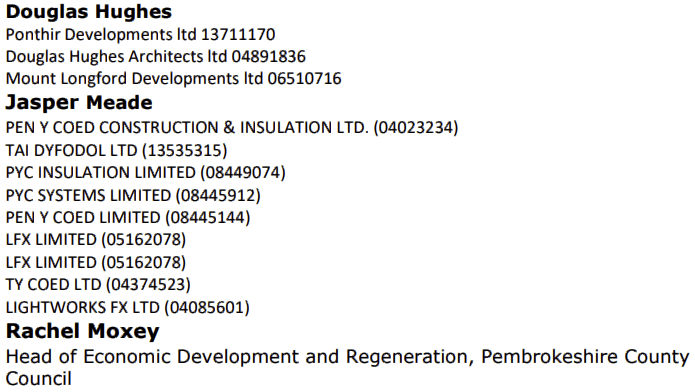
Though I’m unclear on the status of Gary Newman. He was a director when WKW was a company, yet he’s signed the most recent accounts from the FCA as secretary.
But if Newman is now WKW secretary, rather than a director, this would explain why he isn’t listed as being a director of The Foundational Economy Alliance Wales Ltd.
This lot moved in November 2022 from the United Welsh housing association offices in Caerffili to an address in Porthaethwy (Menai Bridge), which is quite a move.
However, the new address for WKW, the one given on the website, is 22 Cathedral Road in Cardiff. (Possibly out back.) Also known as Pentan House, for at this address we also find, Pentan, Rant Media, Moxie People, LRM Planning, The Green Business Centre, and who knows who else?
With Woodknowledge Wales we have another outfit serving the ‘Welsh Government’s self-destructive obeisance to the Net Zero cult. With councils and housing associations made to use more wood in their new builds.
Much of which will be from timber grown by foreign corporations on what used to be Welsh family farms. Or wood from monoculture plantations poisoning land and water.
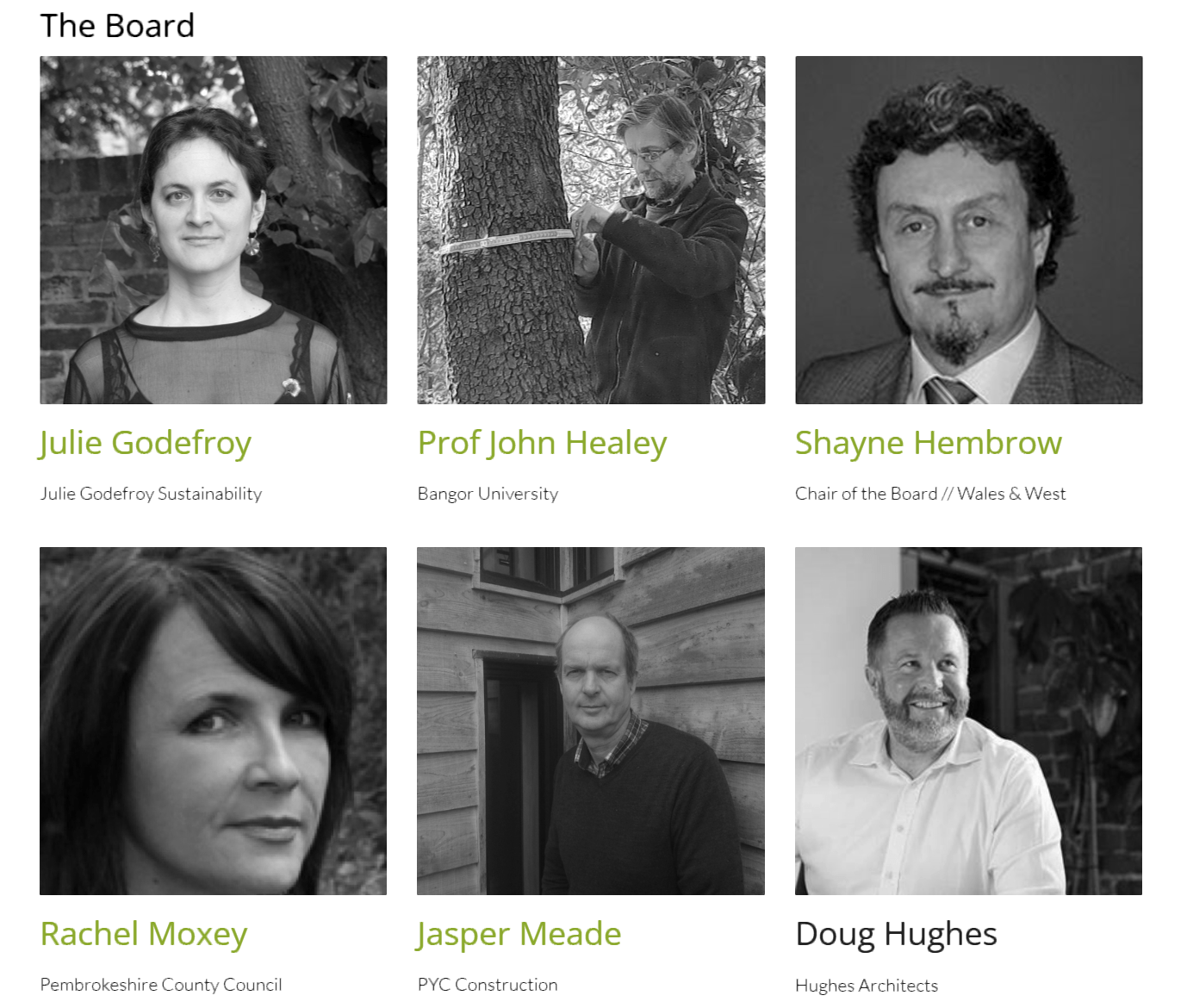
The role I suggest for WKW would explain the presence on The Board of Shayne Hembrow of Corruption Bay’s favourite housing association.
Deputy Chief Executive / Commercial Director of Wales and West Housing Association . . . In addition Shayne is chair of Shelter Cymru and Chair of Woodknowledge Wales.
Hembrow is yet another third sector grifter who came to Wales to help third-rate politicians wreck our country. But I can’t see him listed on the W&W website. Has he gone undercover?
In the FCA filings we see only Hughes, Meade and Moxey named as directors. So does this mean that Godefroy, Healy and Hembrow joined more recently? And why is Godefroy described in her bio as a “trustee“, for WKW isn’t a registered charity?
Finally, and in what seems to be a recurring theme, we have with Woodknowledge Wales a group close to if not controlled by Corruption Bay . . . with one of those involved getting loans from the Development Bank of Wales.
In the case of director Jasper Meade, in January 2020, he landed two loans from DBW Investments (14). One specific to a factory in Buttington, near Welshpool; the other, a more general charge over a number of his companies.
As I say, a recurring theme. Which is why I suggest the Development Bank of Wales needs to be investigated, and then taken away from the control of politicians.
∼
All that said, I could still support this push to use more wood if I thought it would result in a forestry industry employing thousands of people in rural areas, sustaining Welsh communities, complementing farming rather than being used to destroy it.
But that won’t happen. It’ll be like renewable energy, environmentalism, 20mph, and all the other results of politicians buying into the climate cult and the control agenda.
◊
BYE-BYE, PORT TALBOT
Let’s stick with Woodknowledge Wales (WKW) for just a minute. They’ve been pushing a report, ‘Serious About Green?—Building a Welsh wood economy through co-ordination‘.

This makes it clear – as I suggested earlier – that WKW is not simply concerned with us using more wood in buildings. The agenda is much bigger.
And while the report itself seems to be the work of WISERD, the quote below is from Woodknowledge Wales, and can be found here.
Wales is a sheep, beef and dairy nation and Wales is a steel nation. These activities are deeply ingrained in our cultural identity. They may have been rational activities for the past century but are not well-aligned to the low carbon needs of 21st Century Welsh society.
We must give up good-pay steel jobs and the Welsh family farm. And we must do so because a bunch of zealots have decided that we who belong here, working in our own country, in spheres they disapprove of, must lose everything.
◊
UNIVERSAL FRANCHISE . . . AND THEN SOME!
Now we’re going to consider the Elections and Elected Bodies (Wales) Bill. Here’s a shorter summary. And this is how WalesOnline reported it last week.
You’ll see that everyone is to be put on the electoral register whether they want to be on it or not. Speaking for the Electoral Reform Society, chief executive Darren Hughes had this to say:
Automatic voter registration is a win-win for voters as it takes one more thing off their to-do list while also . . . helping to enfranchise the hundreds of thousands of missing voters in Wales.
Which is, as we psephologists are wont to say, and at the risk of sounding technical, utter bollocks.
“Takes one more thing off their to-do list“, says Kiwi Darren. But what if it was never on their to-do list? There are thousands of people in Wales who have chosen not to be on the electoral register.
Consequently, to put them on the register, without their permission, will be an infringement of their privacy and an assault on their freedoms.
As well as bulking up the electoral rolls the Bill also references candidates, and inevitably, we find ‘diversity’ mentioned. Here’s what the summary says on page 5.

“Specific characteristics” is code for trans, as the ‘Welsh Government’ now shies away from using the legally incorrect and deliberately misleading ‘protected’. But it also introduces a new term with “socio-economic circumstances“? Does that mean preference will be given to poor people?
It’s worth asking, because the summary then takes a rather curious twist when it talks of “financial assistance“.
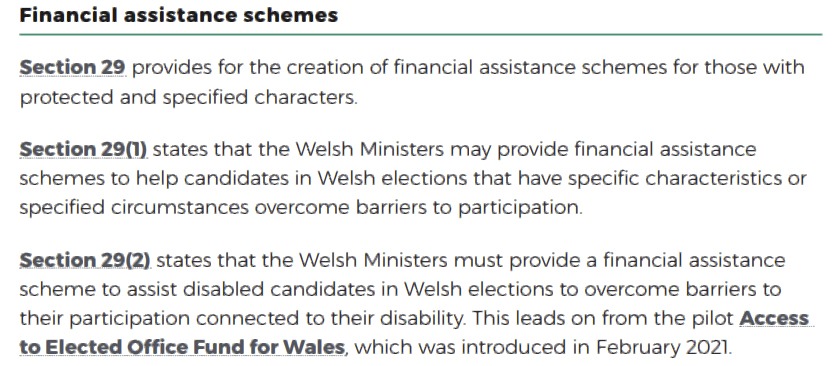
(Is Section 29 written correctly, or should it read, ‘specified characteristics’?)
For me, the mention of disability is a distraction, for most beneficiaries of this largesse will in fact come from other groups.
I expect race and a certain religion to figure, but there may be another clue here.
Welsh Ministers may provide financial assistance schemes to help candidates in Welsh elections that have specific characteristics or specified circumstances overcome barriers to participation.
I went to the full version of the Bill in the hope of finding “specified circumstances” explained. But there was nothing. Leaving me to think the Labour party will sponsor candidates from certain categories on whose loyalty it can count.
Putting everyone on the electoral register only makes sense if we have compulsory voting. But we don’t, and I’m not aware of any plans to introduce it. So why put everyone on the electoral register?
Here’s another concern. This legislation might be in place for the 2026 Senedd elections, which means it will complement the Senedd Cymru (Electoral Candidates Lists) Bill. Yes, that’s the one giving us huge constituencies and closed lists.
In the WalesOnline article you’ll see mentioned Mick Antoniw, the Counsel General. Now I have concerns about this man’s role in elections.

Mainly because of his involvement in pushing through the closed lists system. I dealt with it in my piece Senedd Cymru (Electoral Candidate Lists) Bill. There I explained that Antoniw was even trying to get away with not naming candidates!
The electoral systems of Wales and the UK are screwed up enough without making things worse.
Consider, Labour has just won a landslide victory in the July 4 general election. But it was only a landslide in terms of seats, and entirely due to the peculiarities of the FPTP system. The turnout was well down on recent elections.
The problem – in addition to the Gething factor and the failure of devolution – is that too many people don’t feel engaged by politics, or feel that politicians don’t speak for them.
The priority should therefore be engaging with those who are already on the electoral registers but don’t vote. Because it makes no sense to register people who have no intention of voting.
One change we’ve already seen was the requirement on July 4 for those wanting to vote to produce photographic ID. Now as we know, from the USA and elsewhere, such a rule is racist, and so would never have been introduced by Labour.
For Labour is far more ‘flexible’ when it comes to rules relating to voting.
Which is why I predict that, in addition to putting everybody’s name on the electoral register, we shall also see moves to make postal and proxy voting easier.
In the 2026 Senedd elections we could see un-named Labour candidates, with “specified characteristics” and “specified circumstances“, benefit from “financial assistance” . . . and be elected in turnouts of 127%.
Try to argue then that democracy’s in trouble!
The truth is that once again we see Labour introducing dangerous divisions and dubious methods to serve its own narrow political interests.
◊
LINKS TO THE OLD NORTH
Many of you must be aware of Bute Energy’s plans for a pylon run some 60 miles long from that company’s wind farms in Powys south through the Tywi valley to Llandyfaelog, south of Carmarthen.
There the line from Powys will connect with the line from Pembroke to England. For of course virtually all the power generated in Wales goes to England. (Thankfully, we get the thousands of excellent jobs provided by ‘renewables’.)
The project is being handled by Bute’s Green Gen Cymru. And it’s explained, sort of, here, and if you scroll down there’s even an interactive map.
As might be expected, there is considerable opposition along the route.
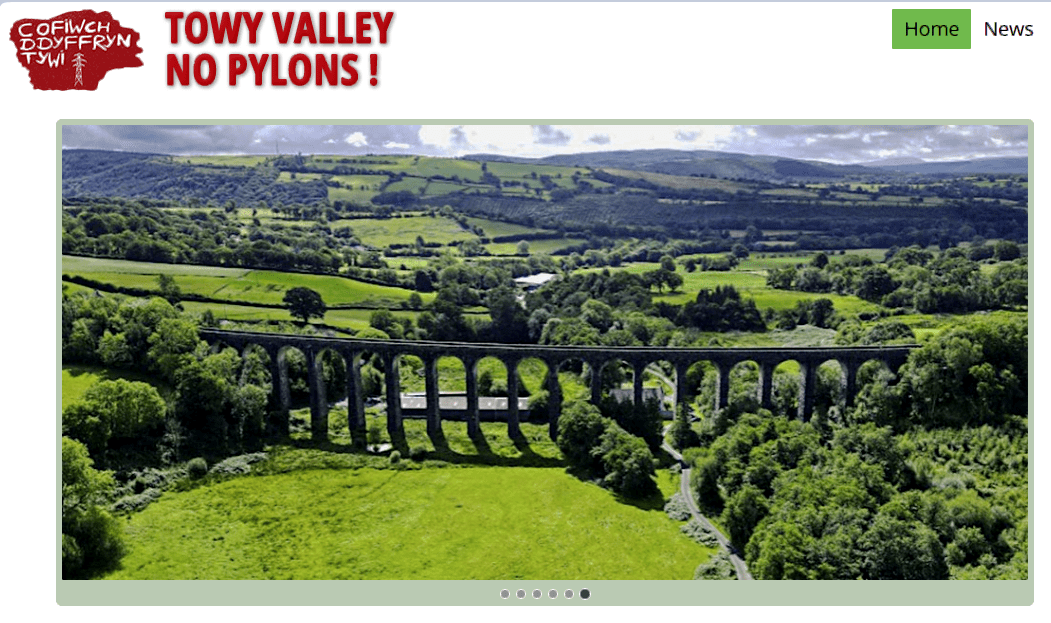
And the plan is severely testing the loyalties of some politicians. (Also, their mental dexterity.) For example, Ann Davies, the new Plaid Cymru MP for Caerfyrddin, has said she opposes the pylons . . . but not the wind turbines.
I don’t want to spend too much time on the Tywi valley project because it’s really just the intro to the other elements of this section.
As I say, roughly half of the electricity generated in Wales goes to England, and the amount will increase if all the planned wind farms get built. The situation is similar in Scotland, with electricity generated there having even further to travel to consumers in central and southern England. (With power being lost in transmission.)
And although it’s been reported once or twice, I’m not sure how many people are aware of the planned new Scottish connection. In a nutshell, it’s proposed that electricity generated off south west Scotland will be taken by undersea cable to Pentir, near Bangor, and then overland to Swansea North substation.
I’d like to be able to show you a map of the route, but there isn’t one, all I’ve seen is a vague line from Bangor to Swansea . . . through Eryri. Which obviously isn’t going to happen.
In this CPRW article Dr Jonathan Dean has this to say.
The route of this line is not yet known, despite me asking them numerous times. As they will not get consent for pylons in Eryri national park they basically have two options:
- along the north coast to Conwy, up the Conwy valley, past Bala then down to the Tywi valley to Swansea
- across the top of Pen Llŷn to Porthmadog, subsea to near Aberystwyth then cross country to Swansea
Which could mean the pylons coming down the Teifi valley, where there is already a campaign fighting Bute pylons. This Bute line will carry electricity from Lan Fawr, east of Llanddewi Brefi. I assume it will also serve Blaencothi and Nant Ceiment.
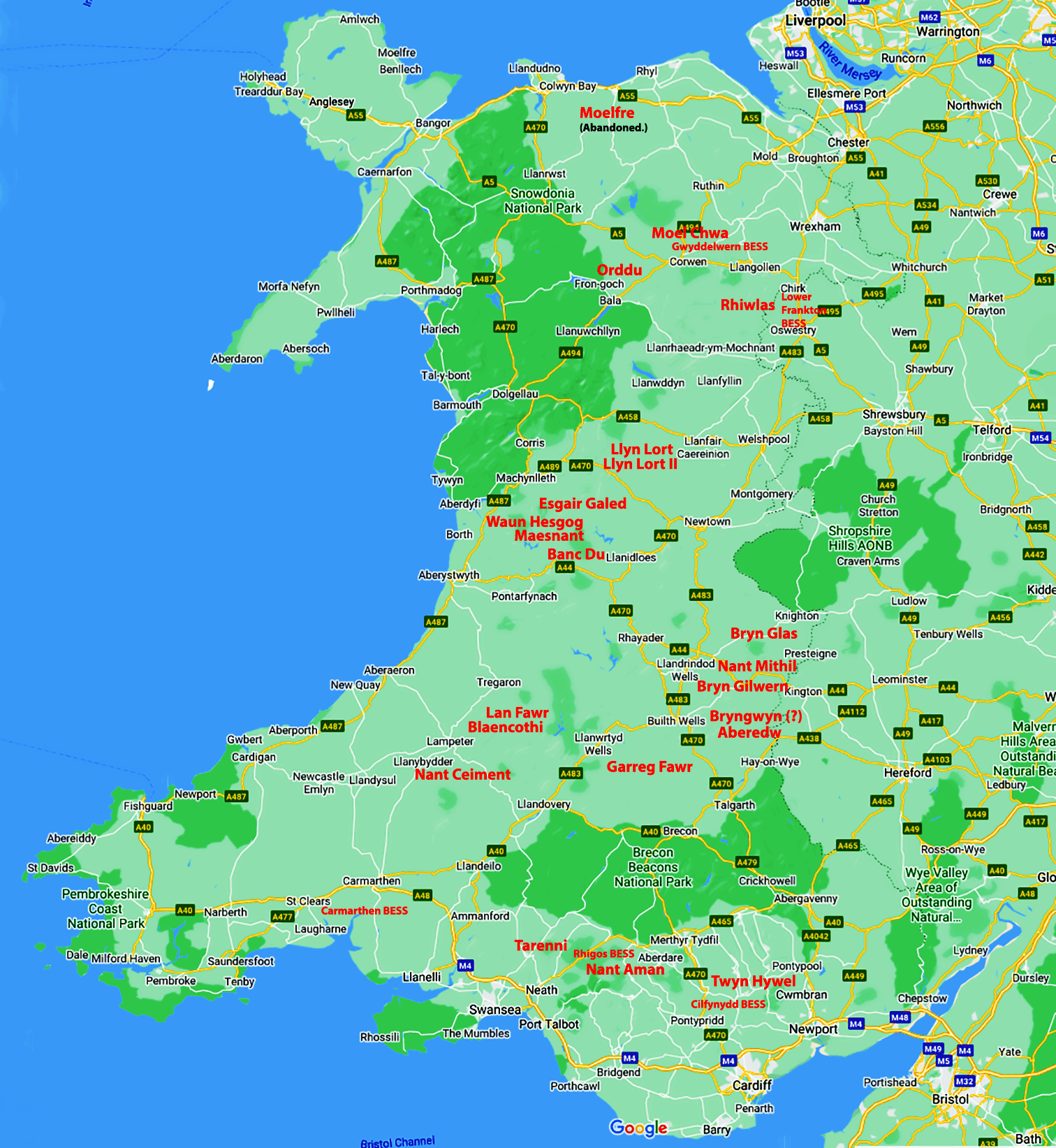
Then the pylons will also run down to Llandyfaelog. But will they share the line coming from Powys, or will there be two pylon runs past Llandeilo? And will they interfere with the route of the planned bypass?
However you look at it, lovely Ystrad Tywi is in for a forest of steel pylons marching for mile after mile over hill and dale. Each one sunk in hundreds of tons of concrete. And all done to save the environment, innit?
∼
The reason that Scotland and Wales have despoiled landscapes in order to generate electricity for England, is partly due to their politicians buying into the climate scam, and partly due to the difficulty of building onshore wind farms in England.
The latter due to different laws that allowed communities affected by such projects to object and, effectively, block them. But the law is changing.
Clearly, if onshore windfarms can in future be built in England, where the power is needed, there’ll be less need to erect windfarms in Wales. In fact, the need might be removed entirely.
It seems obvious to me that many of the mooted projects won’t now be needed. And that might include the pylon runs in the Teifi and Tywi valleys, even the big one from Bangor to Swansea.
And seeing as Bute Energy has yet to erect a single turbine, I think the ‘Welsh Government’ should call a halt to onshore wind projects in order to assess how the new legislation in England might impact on Wales.
We don’t want the ‘Welsh Government’ (via NRW) felling tens of thousands of trees, allowing hundreds of 800ft wind turbines, and hundreds of miles of pylons, if nobody wants to buy the electricity they erratically produce.
We’ll just have to live without the thousands of £70,000 pa jobs they’d have created.
♦ end ♦
© Royston Jones 2024

 the period of 2.12
the period of 2.12
